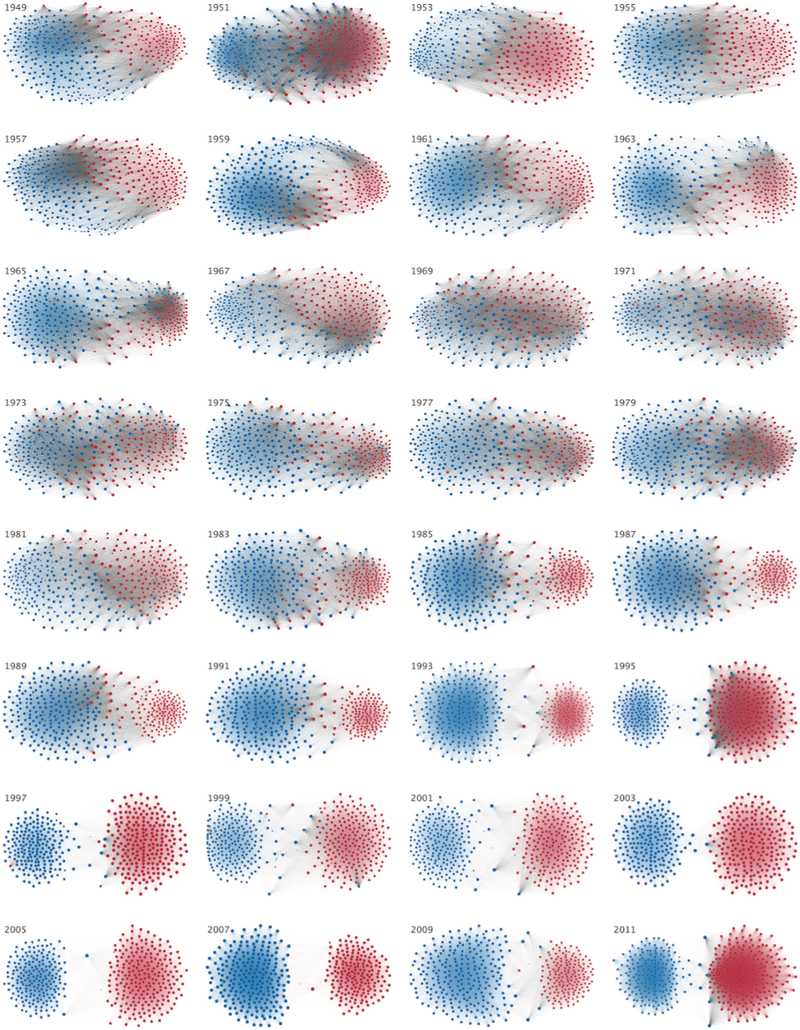Political Polarization in Congress Never Looked So Beautiful

We know polarization in Congress has only gotten worse over the years. It has gotten so bad that Congress can no longer be considered a functional government institution. When a bill passes, it is either bipartisan grandstanding, completely inconsequential, or protects the interests of sitting lawmakers rather than the American people.
Hyper-polarization is not pretty; it is a serious problem that is not going to be easily resolved. It will require major changes to how we elect the very lawmakers that have contributed to the historic partisan gridlock we see today. Yet, Vox reported Thursday on a visualization from six researchers that not only shows the dramatic evolution of political polarization in Congress over the past six decades, but does so in a rather beautiful way:
It is baffling to see how divided the Republican and Democratic parties have become over a relatively short period of time.
"You can see here that in the 1960s and 1970s it was actually quite common for members of one party to vote with the other party. The blue dots and red dots are intermixed. But gradually in the 1980s and especially in the early 1990s, partisan voting behavior grew much stronger. By the 1993-'94 Congress — just before the Republican takeover of the House — the overlap on votes between the two parties had almost completely vanished; you can see the two groups of dots self-segregate into homogeneous clusters. Since then, the gap between the parties has remained large — and very few members of Congress have frequently crossed it. Check out the researchers' full paper here." - Vox, April 23, 2015



